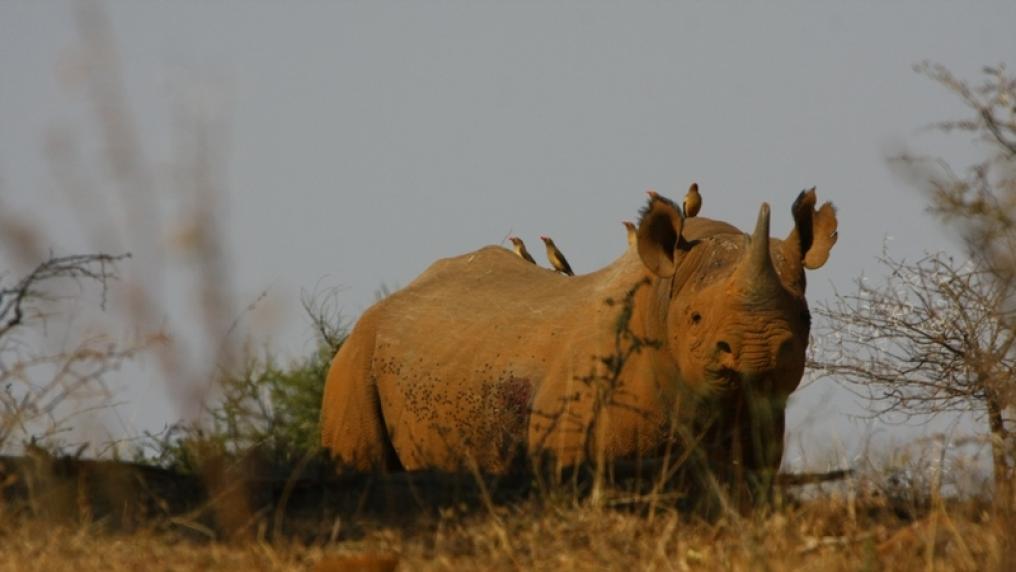Black rhinos eavesdrop on alarm calls of hitchhiking oxpeckers to avoid humans

In Swahili, red-billed oxpecker birds are called Askari wa kifaru, or 'the rhino’s guard'.
Now a Victoria University study suggests that this indigenous name rings true: oxpeckers act as a sentinel-like first line of defence for critically-endangered black rhinos by calling out when they detect advancing poachers.
By tracking black rhinos in South Africa, behavioural ecologist Dr Roan Plotz found that rhinos carrying oxpeckers, which feed on the ticks and lesions found on rhinos, were far better at sensing and avoiding humans than those without the hitchhiking bird.
Conservation efforts have helped boost numbers of black rhinos in recent years, but poaching remains a major threat.
"Black rhinos have large, rapier-like horns and a thick hide, but they’re as blind as a bat."
"Hunters approaching from downwind could walk within five meters and not be noticed,
" he said.
Dr Plotz used an experimental human approach trial to show that oxpeckers made up for a rhino’s poor eyesight by warning them of approaching humans. The birds allowed rhinos to detect humans much faster and from a further distance.
His study found that rhinos without oxpeckers detected approaching humans only 23% of the time, but those carrying the alarm-sounding oxpeckers noticed them 100% of the time.
Birds also help rhinos detect humans from further away
The more oxpeckers that a rhino carried, the further the distance of detection. Those carrying the birds were able to detect humans at an average distance of 61 meters – nearly four times further than rhinos without oxpeckers.
Once a rhino heard the oxpecker alarm call, it nearly always re-oriented itself to face downwind. This is its vulnerable sensory blind spot and, the direction from which humans favour hunting big game like rhino.
"These results suggest that oxpeckers are effective companions that enable black rhinos to better detect and evade encounters with humans,
" he said.
Dr Plotz says that oxpeckers may have evolved this cooperative behaviour with rhinos as a way to protect their own valuable food source. The birds eat ticks and parasites found on their rhino host, but the rhinos have been increasingly driven to the brink of extinction by human overkill.
Ironically, oxpecker populations have also significantly declined in recent years, and are even locally extinct in some areas of Africa. This study suggests reintroducing the bird into rhino populations could bolster conservation efforts of both species.
Dr Plotz’ study Oxpeckers help rhinos evade humans was published in Current Biology.



